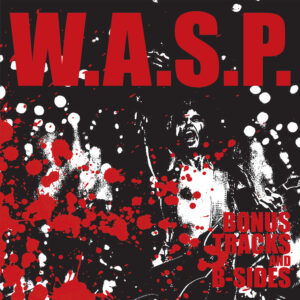Music Pirates Ordered To Pay £170,000 To Record Companies
A pirate music dealer was ordered to hand over £100,000 in payment to the record companies she ripped off by running an organised crime gang and illegal trading empire.
Farrah Nissa had coordinated an operation that clandestinely imported an estimated 1.2 million counterfeit CDs from the Czech Republic and sold them in the UK. Today’s order was made by Judge Bing at Snaresbrook Crown Court in recognition that the pirate music distributor had caused significant loss to the music industry. He ordered that the money that had been confiscated from her under the provisions of the Proceeds of Crime Act 2002 be diverted to pay compensation to the music industry.
The money will be collected by the BPI, which represents the recording industry in the UK, on behalf of PPL, the music licensing company that collects performance rights revenues for record companies in the UK, who will then compensate their members.
Nissa had been convicted, along with three co-defendants, of conspiracy to infringe copyright law in March 2008 and served a substantial prison sentence. Another of those found guilty, Wasim Mir, was ordered to hand over £70,000 back in December 2009 for his role in the illegal operation.
The music pirates sold unlicensed urban music compilations through shops and market stalls across London and southern England. One of these compilations, In The Club, ran for more than 15 editions. Nissa’s company, SFH, was one of the largest independent brokers in the UK.
This is the first case in which music pirates have been required to pay record companies compensation for the damage they have caused. This recovery policy was formulated by IFPI, which represents the recording industry worldwide, and implemented in partnership with BPI and the police’s London Regional Assets Recovery Team (RART) who identified the profits that had been made from this criminal enterprise.
The original criminal case followed a joint investigation by IFPI and BPI, coordinating the international and UK lines of enquiry. BPI conducted a test purchase of a CD that was dispatched to IFPI’s forensic facility. Using cutting edge technology, investigators pinpointed the source of the discs as a manufacturing plant in the Czech Republic. The operators of the plant assisted the industry investigators in identifying the four illegal traders based in the UK. The industry team was then able to take its evidence to the Metropolitan Police for further investigation.
Jeremy Banks, director, anti-piracy, IFPI, says: “Today’s ruling shows that when it comes to music piracy crime really does not pay. We have always pursued a strategy of disrupting the manufacture and supply of counterfeit CDs, now in the UK we are able to take the profit out of the process as well. I would like to thank the Metropolitan Police Service for their thorough investigation of this aspect of the case and the Fraud Prosecution Service for recognising that music piracy is not a victimless crime.”
David Wood, BPI director of anti-piracy, says: “This was a complex and lengthy enquiry into an organised criminal gang who had tried to hide behind a shield of respectability. I would like to acknowledge the professionalism and dedication of all those who took part in this successful prosecution. The decision to strip the gang of the illegal gain accumulated demonstrates the seriousness of the crime committed.”
Source: MI2N


